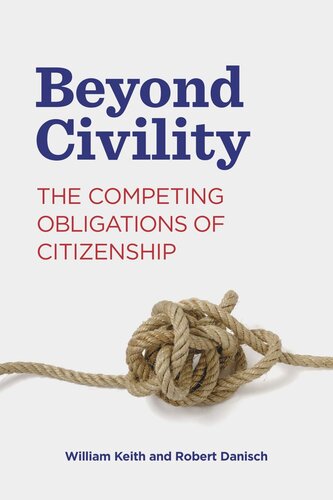

Most ebook files are in PDF format, so you can easily read them using various software such as Foxit Reader or directly on the Google Chrome browser.
Some ebook files are released by publishers in other formats such as .awz, .mobi, .epub, .fb2, etc. You may need to install specific software to read these formats on mobile/PC, such as Calibre.
Please read the tutorial at this link: https://ebookbell.com/faq
We offer FREE conversion to the popular formats you request; however, this may take some time. Therefore, right after payment, please email us, and we will try to provide the service as quickly as possible.
For some exceptional file formats or broken links (if any), please refrain from opening any disputes. Instead, email us first, and we will try to assist within a maximum of 6 hours.
EbookBell Team

4.1
70 reviewsFrom the pundits to the polls, nearly everyone seems to agree that US politics have rarely been more fractious, and calls for a return to “civil discourse” abound. Yet it is also true that the requirements of polite discourse effectively silence those who are not in power, gaming the system against the disenfranchised. What, then, should a democracy do?
This book makes a case for understanding civility in a different light. Examining the history of the concept and its basis in communication and political theory, William Keith and Robert Danisch present a clear, robust analysis of civil discourse. Distinguishing it from politeness, they claim that civil argument must be redirected from the goal of political comity to that of building and maintaining relationships of minimal respect in the public sphere. They also take into account how civility enables discrimination, indicating conditions under which uncivil resistance is called for. When viewed as a communication practice for uniting people with differences and making them more equal, civility is transformed from a preferable way of speaking into an essential component of democratic life.
Guarding against uncritical endorsement of civility as well as skepticism, Keith and Danisch show with rigor, nuance, and care that the practice of civil communication is both paradoxical and sorely needed. Beyond Civility is necessary reading for our times.